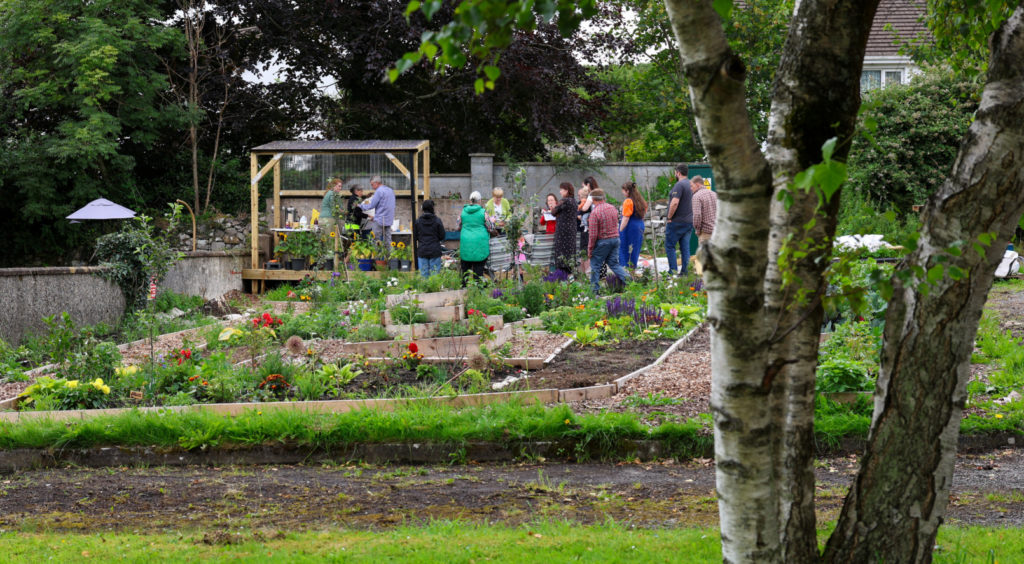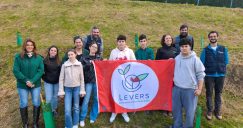
Future Food Forests is an initiative in Westport, Co. Mayo that promotes a thriving wellbeing economy, nourished by local, healthy and sustainable food systems. As part of this initiative, a local community group are creating their own food forest.
Food Forests
Westport is the third largest town in Co. Mayo in the west of Ireland, built on the Carrowbeg River which flows into the Atlantic at nearby Clew Bay. In Westport, and across rural Ireland, the storm known as the “Beast from the East” in 2018 left supermarket shelves empty for days. Experiences like this remain fresh in memory, highlighting how vulnerable food supply chains can be to sudden shocks. These events can trigger fear and uncertainty, but fear on its own rarely leads to action.
Food forests offer an action-oriented solution. A food forest is a land management system where trees, shrubs and perennial plants are planted in such a way as to mimic the structure of a natural temperate woodland. This results in the formation of a sustainable and stable ecosystem. They are tangible, visible, and rooted in place. By producing food locally, creating resilient ecosystems, and offering a shared space for learning, they respond directly to the vulnerability exposed by past crises. At the same time, they give communities a hopeful, practical pathway to act together on climate and food security.
Welcome to Father Angelus Park

Father Angelus Park, developed as a residential area in Westport in the 1950s, has 40 houses and a central green space with benches, playing fields and trees. Along a cul-de-sac to one side of this area was a 15m x 5m plot of land, which until 2024, was unused by the residents.
Through hours of community work and collaboration this area of overgrown bracken and trees has grown into the Father Angelus Park Food Forest, a communal space growing food and flowers, featuring a shelter and a barbecue area.
Father Angelus Park is becoming more than a green space. It is a living laboratory and a community hub. The food forest provides food and habitat for pollinators, while also creating opportunities for education, participation, and connection among residents. Workshops, planting days, and shared learning events have already begun to build a strong sense of ownership and pride in the project. This collaboration is also creating new links between local and academic communities, ensuring that the knowledge generated in Westport can inform broader research and policy on community climate action. It shows how systemic design, non-formal education, and community activism can come together to create lasting, locally rooted solutions to environmental challenges.
Seeds of Change
The Father Angelus Park Food Forest represents the local Irish strand of LEVERS. The collaboration between Westport Tidy Towns, Food Forests Ireland (formerly the Edible Landscape Project), and the Science & Society Research Group at Trinity College Dublin shows how local action and academic research can come together to create meaningful environmental and social change in the face of socio-ecological crises.
To capture our journey we have produced a Community Fieldguide to record and share the development of the Father Angelus Park Food Forest. This document tells the story of that journey in 2024 and 2025. It shows the resilience of a community, the creativity that emerges from necessity, and the seeds of new ideas already sprouting.
You can download a copy of our Community Fieldguide, ‘Seeds of Change’, here:
Download SEEDS OF CHANGE






